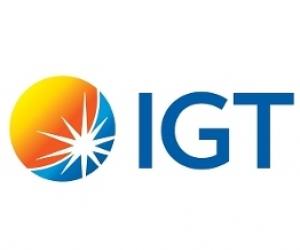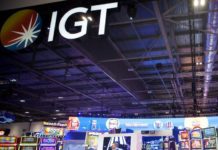 International Game Technology (IGT) has reported a marginal decline in revenue of $1.15bn (£895.7m/€1.04bn) for the third quarter of 2016, 0.3% below last year’s figure, but profit increased more than four-fold, as foreign exchange gains more than offset higher operating costs.
International Game Technology (IGT) has reported a marginal decline in revenue of $1.15bn (£895.7m/€1.04bn) for the third quarter of 2016, 0.3% below last year’s figure, but profit increased more than four-fold, as foreign exchange gains more than offset higher operating costs.Most of IGT’s revenue for the three months to 30 September came from services, with the divison accounting for $921.7m of the total, 4.3% down year-on-year. Product sales, meanwhile, contributed $231.5m of revenue, up 20.2%.
The gaming and interactive vertical in North America brought in $257m worth of revenue for the period, up 9.5% year-on-year. Of this $257m, $103m came from gaming services from terminals, $43m from other gaming revenue, $74m from sales of terminals, $33m from other sales and $4m from other income. IGT shipped 4,941 units in North America in the quarter, 28.6% more than in 2018.
The North American lottery vertical brought in a further $281m, up less than 1% from 2018. The supplier installed 14,294 video lottery terminals in North America in the quarter, down 4.5%.
 A total of $402m of revenue came from Italy, 6.5% less than in 2018. This was made up of $154m in gaming revenue, with $172m coming from lotteries, and the final $76m from other sources. From sports betting, IGT generated revenue of €41.5m from €249.7m of player stakes.
A total of $402m of revenue came from Italy, 6.5% less than in 2018. This was made up of $154m in gaming revenue, with $172m coming from lotteries, and the final $76m from other sources. From sports betting, IGT generated revenue of €41.5m from €249.7m of player stakes.International gaming contributed $118m in revenue, up 20.4% from 2018, while international lottery revenue took in $79m, a 21.0% decline and other international revenue made up $16m. IGT shipped 5,244 gaming machines internationally, a 63.4% year-on-year increase.
IGT’s total operating expenses came to $999.4m, up 4.6% year-on-year. Of that $999.4m, costs of services were comfortably the largest expense, at $575.6m, 1.9% less than in 2018. Selling, general and administrative costs came to $201.4m, up 3.8%, while costs of product sales came to $136.2m, 27.0% more than in 2018. Research and development costs came to $68.8m, up 8.7%, while impairment costs fell 71.8% to $432,000.
Other operating expenses increased to more than six times 2018’s figure, albeit from a low base, to $16.9m.
These increased costs led to a 23.1% decline in operating profit, to $153.9m.
IGT paid $102.6m in interest expenses in the quarter, down less than 1% from 2018. However, these costs were offset by a $124.1m gain from foreign exchange, up 487.9% from 2018. After paying other expenses of $308,000, IGT’s total non-operating income was $21.2m, compared to an expense of $99.7m in 2018.
This led to pre-tax income of $175.1m, up 75.0% from 2018. After paying $44.5m in income taxes, IGT made $130.6m in net income, up 140% year-on-year.
After attributing $27.0m of income to non-controlling interests, $103.6m could be attributed to IGT, a 364.4% year-on-year increase.
Marco Sala, chief executive of IGT, said the company’s financial success could be attributed to its focus on players.
“Our core businesses achieved significant momentum in the third quarter and year-to-date periods,” Marco Sala, CEO of IGT, said. “Our leading positions are rooted in our focus on player-driven performance, which was on display at recent lottery and gaming trade shows and should sustain our momentum going forward.”












